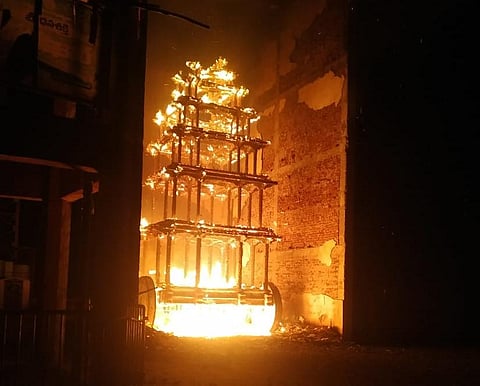Temple attacks in Andhra Pradesh a cause for concern
Attacks on temples, reminiscent of the Taliban’s vandalism in Afghanistan, have of late shaken Andhra Pradesh. The most shocking of these was the beheading of a 400-year-old murti at the Ramatheertham temple. It was the second such high-profile attack after the burning of the chariot at Antarvedi in September last.
These are not stray incidents. There is a pattern and a motive, for sure, which appear sinister. At this point, we can only speculate since the state police or the CBI, probing the Antarvedi incident, are yet to crack most of these cases.
As per records, there have been 15-20 serious incidents of temple desecration since September last and hundreds of temple theft cases over the years. The police and the government have definitely failed to anticipate them, let alone act with the urgency needed, until the Ramatheertham episode. Now, communal harmony committees and a special investigation team have been constituted. Would these suffice?
Unlikely, even if the cases are solved, since a political battle is already on, with Chief Minister Jagan Mohan Reddy pointing fingers at the TDP and the latter accusing him of encouraging conversions in an overt reference to his Christian faith. The BJP has been more than eager to capitalise on the issue, with one of its leaders claiming that the choice before the people is between a Bible party (YSRC) and a Bhagavad Gita one (BJP) in the upcoming Tirupati by-election. This could well be an inflection point in state politics, one that doesn’t bode well.
To prevent the state from turning into a communal cauldron and prove its sincerity, the government must explore long-term options including freeing temples from its control and ending induced conversions. Religious freedom is a fundamental right and it can’t be selective, no matter what one’s definition of secularism is. Its real meaning was eloquently voiced by Swami Vivekananda when he said: “The Christian is not to become a Hindu or a Buddhist, nor a Hindu or a Buddhist to become a Christian. But each must assimilate the spirit of the others and yet preserve his individuality and grow according to his own law of growth.” This is our road to salvation.

